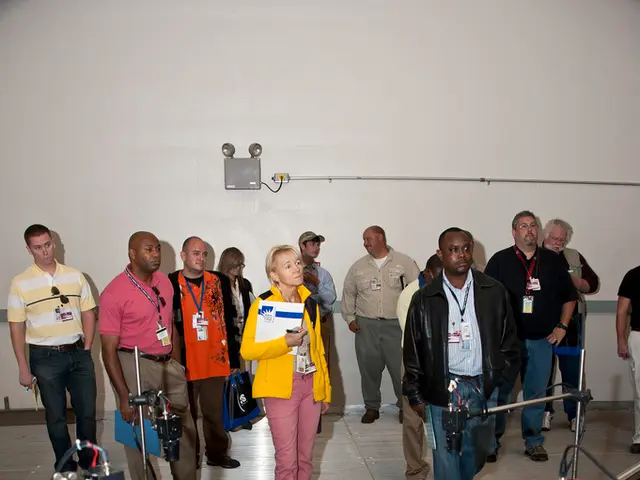Interview with Cynthia Orofo, Head of Culture Care Collective: 5 Key Insights
A leading data innovation center recently interviewed Dr. Cynthia Orofo, chief executive officer of Culture Care Collective, a company specializing in AI-powered tools designed to connect individuals with healthcare and social services. In the interview, Dr. Orofo discussed the benefits of incorporating technology into community care, highlighting its potential to bridge healthcare gaps, boost efficiency, and reduce costs for underprivileged populations.
David Kertai posed several questions to Dr. Orofo, including her inspiration for establishing Culture Care Collective and the solutions it offers to connect people with vital health and social resources.
Dr. Orofo explained that her creation of Culture Care Collective was motivated by her experience providing mobile health care and observing how social factors like housing, food, and childcare affected health outcomes. This inspired her to pursue a doctorate focusing on the connection between social determinants and health outcomes, culminating in the establishment of Culture Care Collective.
The organization's AI platform assists in linking individuals with the appropriate health and social services at the right time. It does this by analyzing both clinical data and contextual factors such as housing and food access, chronic conditions, and other health indicators. This analysis generates personalized recommendations aimed at addressing each client's comprehensive well-being. For instance, the platform can pinpoint individuals at risk of medical complications and recommend local assistance programs, or identify early warning signs of mental health concerns and suggest relevant support services. Additionally, the platform supports community health workers and caregivers by offering real-time guidance, such as appointment reminders and resource recommendations. By providing caregivers with effective tools, they can build stronger relationships with clients and address health concerns more effectively.
David Kertai also inquired about the role of AI in reducing medical expenses. Dr. Orofo explained that AI improves healthcare and social service efficiency by predicting client needs before they escalate, thereby allowing for early intervention and reducing hospital visits and expensive emergency care. AI can help Medicaid patients by fine-tuning risk models to better account for social factors that impact health, ensuring that care programs are tailored to individual needs. By incorporating these insights, healthcare providers can allocate resources more effectively, leading to improved outcomes and reduced costs.
The system continually tracks client data, adapting to their evolving needs and helping care providers make informed decisions. By delivering timely and appropriate care, AI can minimize unnecessary medical expenses, promote preventive care, and ensure efficient resource allocation. Furthermore, by integrating health and social data, the platform reduces service fragmentation, providing clients with seamless, comprehensive support.
Asked about challenges in integrating AI with healthcare, Dr. Orofo cited initial apprehension from clients and caregivers regarding AI's role in healthcare. To build trust, community health workers explained AI's function as merely an enhancement, not a replacement, for human care. Another challenge was ensuring AI-generated recommendations aligned with the complexity of human care. To address this, the system was designed to support human decision-making, offering data-driven insights while allowing caregivers to tailor care.
In terms of demonstrable success, Dr. Orofo shared an instance involving an international student who struggled with the U.S. healthcare system due to language barriers. The platform connected the student with a community health worker who guided them to essential health and social resources. By identifying key wellness needs, such as affordable housing and mental health support, and offering personalized recommendations, the student received the necessary support, completed a mental health counseling program, and expressed interest in helping other students facing similar challenges.
Public institutions can leverage Culture Care Collective's AI solutions to analyze large datasets from healthcare providers and social service organizations, identifying patterns in health inequalities and underserved populations. By offering real-time insights into the impact of social determinants on health outcomes, the platform can help allocate resources more effectively and improve healthcare delivery. These insights would enable government programs to become more responsive and equitable, addressing the diverse needs of communities in a timely, data-informed manner.
In conclusion, Culture Care Collective is committed to bridging healthcare gaps and addressing unmet social needs by integrating clinical care with social wellness, powered by AI-driven tools. The organization strives to deliver personalized, culturally sensitive, and equitable care, improving healthcare access, reducing disparities, and holistically addressing patients' social determinants of health. By implementing culturally competent, integrated healthcare models like those utilized by community health clinics, Culture Care Collective aims to make a significant impact in marginalized communities, promoting health equity and improved health outcomes for all.
- Dr. Orofo's AI-powered platform analyzes both clinical data and contextual factors such as housing and food access, chronic conditions, and other health indicators, generating personalized recommendations for addressing individual's comprehensive well-being.
- AI improves healthcare efficiency by predicting client needs before they escalate, thereby allowing for early intervention and reducing hospital visits and expensive emergency care.
- The system's AI technology supports health and wellness, not just physical health, by identifying early warning signs of mental health concerns and suggesting relevant support services.
- AI technology can reduce medical expenses by promoting preventive care, minimizing unnecessary medical expenses, and ensuring efficient resource allocation.
- Public institutions can utilize Culture Care Collective's AI solutions to analyze large datasets and identify patterns in health inequalities, leading to more effective resource allocation and improved healthcare delivery for underprivileged populations.







